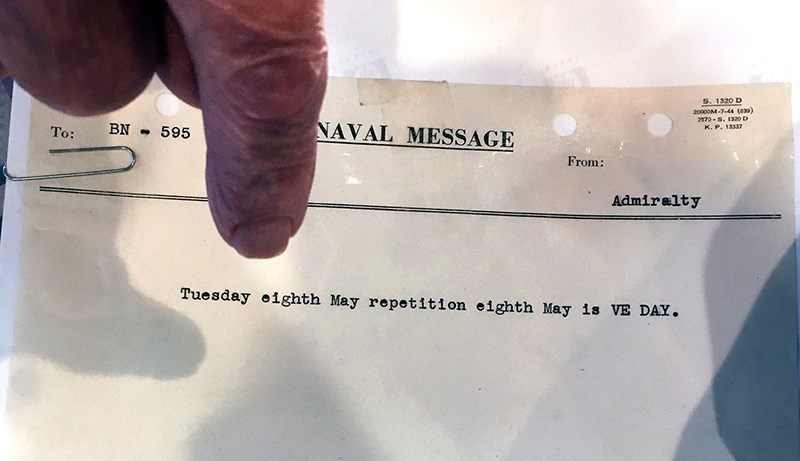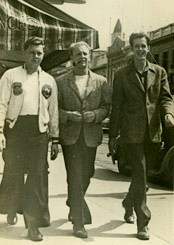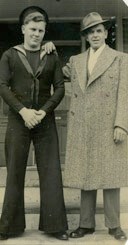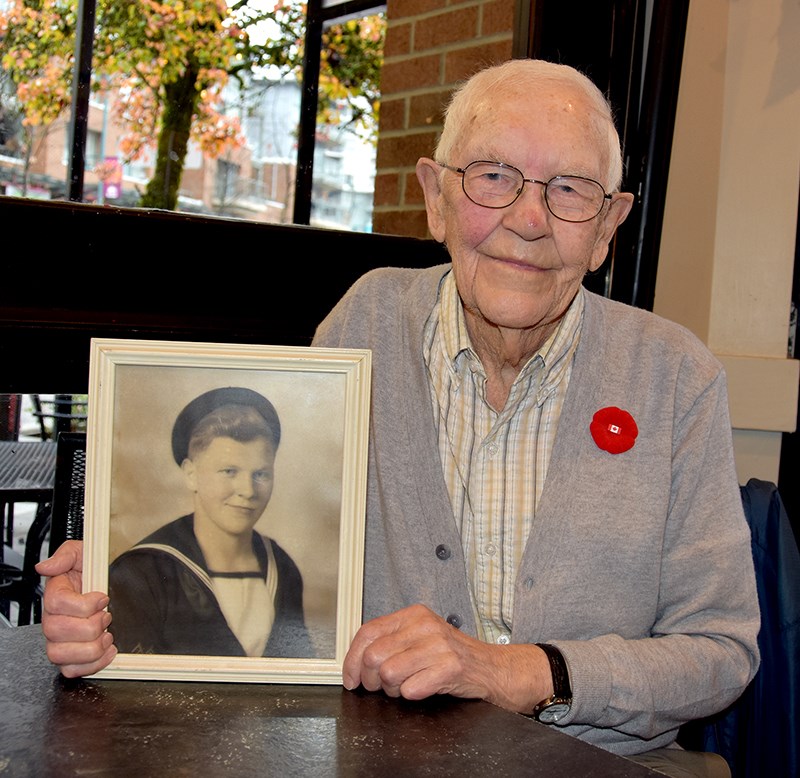As a coder in the navy during the Second World War, it was Svend Hansen’s job to unscramble secret messages from headquarters and pass them along to his ship’s commanders.
But the most significant communique to ever come across his desk aboard the HMCS Penetang did not require any decoding.
In plain text, it stated: “Tuesday eighth May repetition eighth May is VE DAY.”
The message was received May 7, 1945 and the following morning, Victory in Europe Day — VE Day— was declared.
To celebrate, a second message was sent to the Penetang: “Splice the main brace.”
“That didn’t need to be decoded,” Hansen told The Tri-City News. “It meant double the rum ration.”

Hansen’s military career began in 1942 when, fresh out of high school, he signed up with the HMCS Tecumseh, a Royal Canadian Navy Reserve, in Calgary. After completing basic training, he was whisked away to Halifax, where he first served on the HMCS Hepatica, a Flower-class Corvette, before moving to the Penetang, a significantly larger River-class frigate.
In the three years before the VE Day message arrived, Hansen’s ship was part of a fleet of vessels criss-crossing the Atlantic conducting convoy duty, protecting merchant ships supplying Britain from German U-boats.
“The first trip I made, I was dreadfully sick,” said Hansen, who had spent his formative years on the prairies, far from the ocean. “After a while, I got my sea legs. I could roll with the ship and it didn’t bother me after that.”

After fighting ended in Europe, Hansen intended to serve in the Pacific theatre. But by the time his duties had concluded in the Atlantic and he had returned to his home in Calgary, the U.S. had dropped atomic bombs on Hiroshima and Nagasaki, and th Second World War was over.Â
Instead, he went to university and eventually took a job in the dairy industry. In 1965, he was transferred to British Columbia, where he bought a home in Port Moody’s Glenayre subdivision before downsizing to a place in Newport Village in the early 2000s.Â
Today, the 95-year-old shares his stories as part of the Memory Project, a volunteer speakers bureau that connects veterans with schools and community organizations across Canada. One question students regularly ask is whether he was scared during the dangerous Atlantic crossings, particularly in the early parts of the war.Â
“You’re 20 years old,” he said is his typical response. “You don’t give a damn. You’re out there and you just go.”
Since joining the group in 2004, Hansen said he has done more than 100 presentations, just one speaker who has helped the Memory Project reach 2.1 million Canadians since its creation in 2001.Â

With Remembrance Day approaching Sunday, this is a busy time of year for Hansen, who is expected to meet with four school groups this week.Â
“I find the social studies groups are very, very respectful and very, very interested,” he said. “Lots of questions come up.”
Remembrance Day is not just an opportunity to learn about Canada’s history, he added, it is also a recognition of the soldiers who have lost their lives serving their country.Â
Hansen notes that Canada, which had a population of 11.2 million when the Second World War began, saw more than a million people serve in the country’s armed forces. Of that total, 42,000 people lost their lives.Â
“When you wear one of these,” he said, pointing to his poppy, “you are giving thanks for their service and to the people that passed away not only in World War II, but in other wars. We thank them for their service.”
@gmckennaTC



